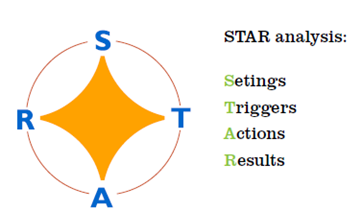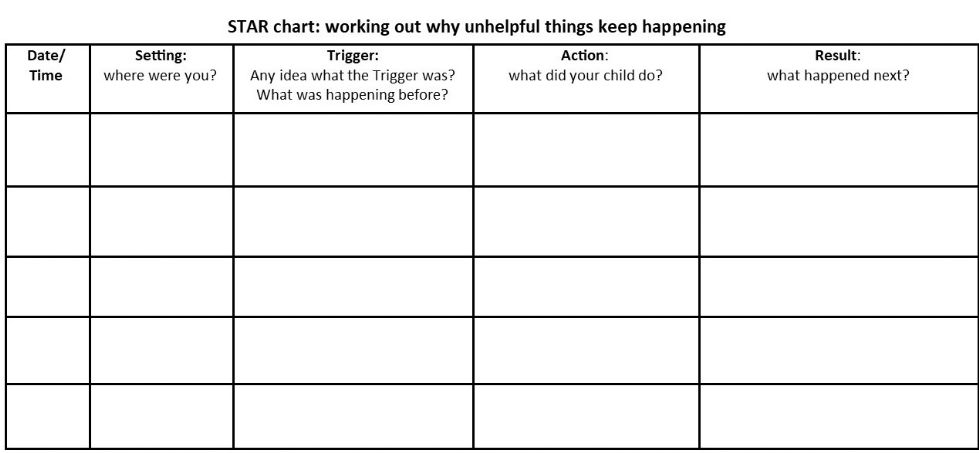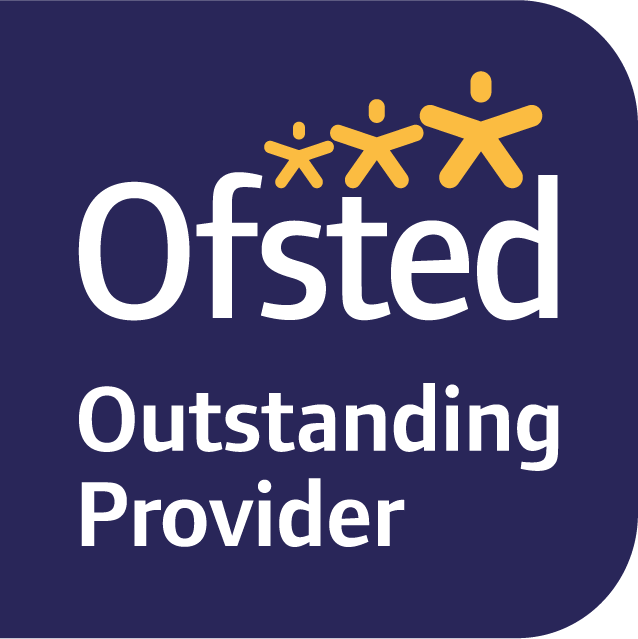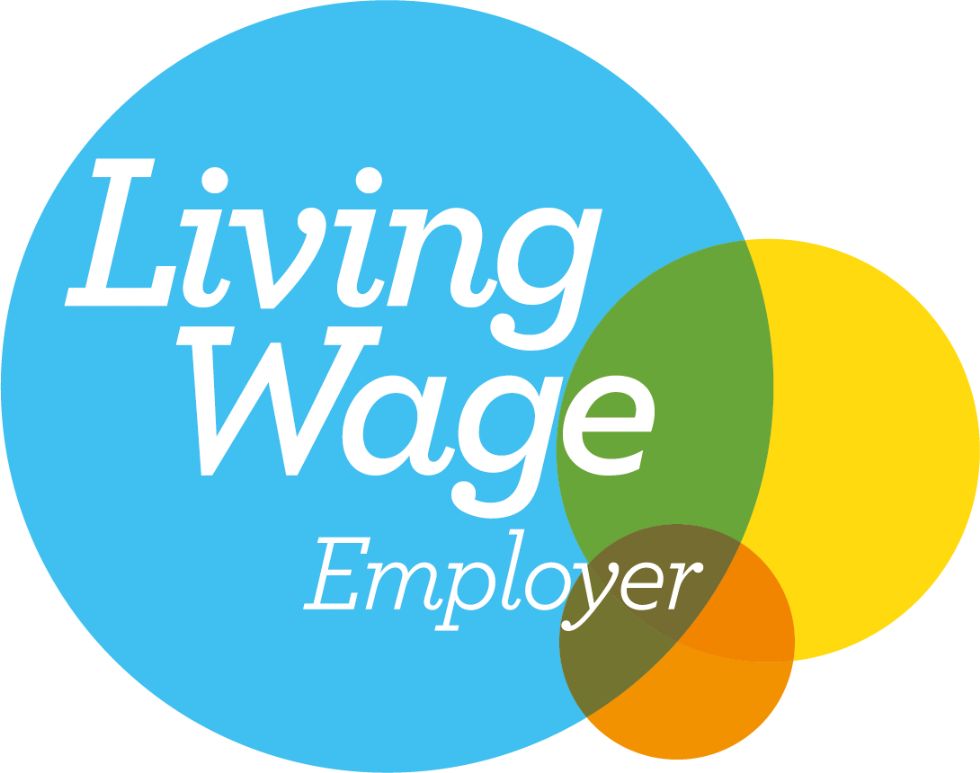Get help
Jump to:
- Best start in life activities and courses
- Parenting help
- Proactive parenting tips
- STAR: a way to work out why unhelpful behaviour keeps happening
- Relationship help
- Childcare
- Child and parent safety and well-being
- Food and feeding
- Special Educational Needs and Disabilities, including the Educational Psychology Service
- Health for all the family
- Housing
- Training/retraining
- Victim Support
- Help with talking about death
Best start in life activities and courses
Family Hubs activities for children aged 0 to 5 are part of Best Start in Life, a government-funded programme supporting Waltham Forest's parents and carers with their children’s growth.
Parenting
Talk to these people if you need support with parenting, how your child is speaking and communicating, the development of your child, or if you feel isolated:
- your health visitor
- your key person, or
- one of the family support people you meet at a Family Hub group.
They will put you in touch with organisations that can help you, including the Baby Bank.
You can also go to a Community Drop-in. Find out about:
- information about local services
- support for parents
- community activities
- form filling
- and help to access online services and more
Some families can go on a 13-week course called Strengthening Families Strengthening Communities:
- You learn ways to raise happy and successful children.
- You learn ways to make your voice heard.
- You meet other parents.
Proactive parenting tips
Consider motivation and rewards
- Give your child a choice of motivation/rewards. Don’t assume you know what they want - even our own preferences can change day by day.
- Using ‘First…, then…..’, e.g. 'First get dressed, then we can have a story'
Give it time
- Habits take a while to develop – keep trying and give it time for both you and your child to adjust.
Be consistent
Consider task difficulty
- Try breaking down an activity/task into smaller chunks, e.g. if a worksheet has 10 questions, instead of expecting your child to complete all 10 at once, start off with 5 or fewer, then build it up gradually. Maybe have breaks in between the chunks.
Avoid empty promises and threats
- If you’ve promised a child a motivation/reward after they complete an activity, make sure you deliver it.
- Try to avoid threats. If you must use a threat, make sure it is fair for the child and is followed through, and doesn't have unintended consequences you don't like, e.g. who suffers most from a week-long screen ban?
Redirection
- Once you see your child getting frustrated/anxious, redirect their attention to something else.
Offer alternatives
- This can be a choice of which activity to start with, choosing where to do the task, a choice of using blue or red pen, etc. Choice is particularly useful for children displaying oppositional behaviours and for anxious children, as it helps them feel they are in control of something.
When behaviour happens that adults find difficult
Behaviour that grown-ups find difficult to deal with is more often than not a sign of stress: work out what is causing the stress, and you stand a better chance of changing the behaviour.
Tantrum or meltdown?
A tantrum stops when the child either gets what they want or understands they aren't going to.
A meltdown is a stress-induced overload, and only stops with calm and gentle support.
Make it a habit to talk to your child about feelings
Barnardo's has made some neat guidance on this.
STAR
A way to work out why unhelpful behaviour keeps happening.
Step 1: Be a detective!
By recording and doing the STAR analysis which helps spot patterns of behaviour

Settings:
- When and where did it happen? Afternoon time?
Non-preferred activities? E.g. when the child is brushing their teeth
Actions:
- What exactly did the child do?
NOT a description of how they are feeling. E.g. "The child threw their toothbrush on the floor."
Results:
- What happened immediately after the action?
Events that follow the action affect the likelihood of that behaviour being repeated. E.g. the child ran off and hid under the bed covers. Result - the child went to bed without brushing their teeth.
Triggers:
- What happened before the action? What are the possible causes of the behaviour? The more incidents you write about, the more ideas you might have.
Was the trigger 5 minutes or 5 hours ago?

Download the STAR chart at the bottom of the page.
Step 2: Creating Change with STAR
- Think about what you've written.
- Can you see any patterns?
- Is there a Setting or a Trigger that you can change, to find out if that changes the Actions and Results?
Change one thing at once to see if it makes a difference.
Relationship help
- If you are struggling with your relationship, it can help to have someone separate from both of you to help you communicate; Relate provide relationship counselling.
- If your partner is behaving in a way that harms you, and talking is not what you need, get help from the Women's Aid website. Sometimes it's easier to write down what the problem is, so on their website you can chat online, email them, or take part in a forum for survivors. Their Survivors Handbook has been translated into several different home languages.
- If you are separating from your child's other parent, this government website has advice about how to make arrangements with them in a way that protects your children.
Childcare
Our schools offer 3 hours a day, 30 hours a week, and 8am to 6pm daycare to 2 and 3-4 year-olds. Read all about this on our Join our schools pages.
We don't have any places for children who are younger than 2.
You can look for alternatives on the London Borough of Waltham Forest website. But please do register with us for when your child is old enough.
Child and parent safety and well-being
Learning the NSPCC underwear song together is a light-hearted way to give children a way to keep safe personal boundaries.
Read our Six Short Lessons in Online safety.
Here are links for specific problems:
- NSPCC support for parents with young children
- NSPCC support if you have a baby or toddler
- NSPCC how to set parental controls
- NSPCC: children staying home alone
- NSPCC parenting and your mental health
- MIND parenting and your mental health
- Action for children: wellbeing - filter advice by topic or age
Food and feeding
For infants: breast, bottle, and mixed
Two sources of advice and support for infant feeding are Henry and la leche league. Here is the Henry timetable. The Henry Infant Feeding helpline is 020 7961 9073. The team takes calls from Monday to Friday 9-5pm and Saturday 9-2pm.
For babies and toddlers
Parenting charity Best beginnings has lots of information about feeding babies and toddlers.
For young children
BeeZee Bodies is an organisation that helps families in Waltham Forest with food and feeding. Join a free course that will help all the family live healthier lives by signing up on the BeeZee Bodies website.
For families
The NHS Food Scanner app lets you scan food and make healthier choices.
The NHS healthier families pages have packed lunch recipes and guidance.
The BDA -- Association of British Dieticians -- has a recipe finder that you can search by ingredient, meal type, cooking method, preparation time or specific need e.g., gluten-free. The yummy recipes include nutritional information and are designed for you to cook with your child.
The First Steps Nutrition Trust has pdfs on packed lunches for 1 to 5 year olds, snacks, portion size and lots more.
The Health for Under 5s website has guidance for making packed lunch. So does the Association of British Dieticians.
Special Educational Needs and Disabilities
Join Waltham Forest parent forum, an organisation for parents and carers of children and young people with special educational needs and disabilities.
Haven House is our local children's hospice.
Markefield is a charity in Tottenham which provides an after-school club and other support for children with disabilities, children who are autistic, and their families.
The Local Authority's SEND offer page has an enormous amount of information about where to get support.
Discover what we can offer you by reading our Church Hill SEND Offer and our Low Hall SEND Offer.
Educational Psychology
Educational Psychologists are qualified specialists in child psychology and child development. They have particular expertise in supporting children and young people with special educational needs, learning difficulties, and social, emotional and behavioural difficulties.
If you have concerns about your child, talk to our SENDCo, or you can make an appointment with Educational Psychology Service by emailing:
educationalpsychologyservice@walthamforest.gov.uk
Health for all the family
- Please download the booklet below, 'A Parent's Guide from birth to five and beyond for Child Health and Common Illnesses'. It has lots of information that you might find useful. There is also a free app.
- You can find lots of information on the NHS conditions website.
- Our local hospital is Whipps Cross University Hospital.
- Taking your child to the dentist is free. Find your nearest dentist on the NHS service website.
- Children can learn how to care for themselves by seeing you care for yourself. Many people find yoga a good way to do this. Find out if this works for you by trying it in private with free and donation sessions with yoga with Adrienne.
- For a way to build physical strength (and through it, your mental strength and wellbeing), have a look at Busy Dad Training (mums and everyone also welcome): 4 x 20 minutes a week, build from nothing to what pleases you. No equipment necessary. Free on YouTube.
- Another YouTube trainer who is very gentle and encouraging is Lucy Lismore. She shows you how to do body weight exercises, beginner weights, and resistance bands.
Housing
For housing advice go to Waltham Forest housing service.
Training/retraining
- Waltham Forest adult learning service provides courses to help you find work
- The Open University - free courses in just about anything, as well as paid ones
- Coursera – 2,730 free courses (and links to many paid ones) from top institutions
- https://www.edx.org/ - 2,500+ online courses from top institutions
Victim Support
If you have been the victim of a crime, contact Victim Support to get help and advice.
Help with talking about death
Babies and toddlers also grieve. The Child Bereavement UK website has lots of information families might find helpful in all kinds of circumstances relating to death. You can download their leaflet for talking to under 5s about death at the bottom of this page.
The charity Winston's Wish has a helpline, or you can ask for help by email, online chat, or text.






